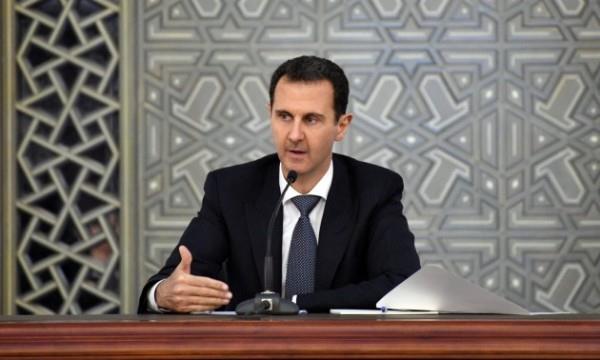
Damascus throws 'transition' up in air by skipping Geneva talks
Any hopes pinned on the eighth round of UN-mandated talks in Geneva yielding a firm peace settlement in Syria were dealt a blow on Tuesday as Damascus skipped the opening date in a move that threatens to derail the entire process.
The Syrian government delegation is expected to make a brief stop-over in Switzerland on Wednesday (November 29), during which it will explain its non-appearance to the UN Special Envoy, Staffan De
Mistura. Whatever hopes he had that this time of direct, face-to-face talks between the warring Syrian factions are dead in the water.
Also on Tuesday, it was announced that a Kremlin-sponsored 'national dialogue conference' due to be held at the Russian Black Sea resort of Sochi has been postponed. The brainchild of President Vladimir Putin, it was due to convene on 2 December 2017, and would have brought 1,300 Syrians to the negotiating table. The tentative new date for Sochi is 15 January. This is the second postponement after two initial dates were penciled in and then scrapped in November.
A ninth round of talks in Switzerland, tentatively set for December 8, was also due to happen before Christmas but that too has now been put off.
This wasn't supposed to happen. Hadn't Presidents Donald Trump and Vladimir Putin agreed to work together on Syria during their last meeting in Vietnam in mid-November? Their joint statement was well-received in both Moscow and Damascus, and Trump commented that 'I think people are going to be extremely happy with it and also very impressed by it.'
The statement stressed that there was no military solution for Syria, only a political one, and spoke both of constitutional reforms and elections, while acknowledging President Bashar al-Assad's 'commitment' to the political process.
As far as the Russians were concerned, this was a de facto statement by the US of surrender to Putin's long-held stance on Syria – namely that the regime should not be toppled, that Assad should be part of the country's transition and that he should be allowed to run for a new term when his current tenure expires in 2021.
That momentum led to high hopes for Geneva and Sochi, with Trump sending Assistant Secretary of State for Middle Eastern Affairs, David Satterfield, to attend the UN talks in Switzerland – the most senior US diplomat to attend Geneva since Trump's inauguration last January. All previous rounds were attended by the United States in ceremonial fashion, with very little input from the State Department.
Trump only agreed to let Sochi happen on the condition that Iran only be invited as an observer, with no decision-making input, or guarantor status like it had enjoyed at prior talks, in Astana talks. Putin nodded affirmatively and Trump assented to the Sochi process: he would not join it, but neither would he disrupt it.
Damascus now says that it skipped Geneva due to the hardline statement issued by the Syrian Opposition in Riyadh on November 22, which stressed its ongoing commitment to Assad's departure. As far as Syrian officialdom is concerned, this stance must be scrapped for any serious political talks to commence — a position shared by Moscow and
Tehran.
For its part, the opposition insists it already made 'huge concessions' in Riyadh last week, including sidelining hardliners who have insisted on Assad's departure, such as the president's former prime minister, Riad Hijab, who defected in August 2012, and eight top opposition figures. They also issued a final communique that put Assad's departure as a goal, rather than a precondition for future talks, and said they would head to Geneva with no pre-conditions.
Clearly, this was not enough for Damascus and Moscow. They wanted to drop the fate and future of the Syrian President from all future talks, committing only to constitutional reforms and 'elections,' without specifying whether they will be presidential or parliamentary. They claim that the Riyadh communique breaches UNSCR 2254, which
doesn't call for Assad's departure.
The opposition says it wants a Transitional Government Body (TGB) to assume presidential powers from Assad ahead of the transition period, another demand that is also vetoed strongly by Moscow. Foreign Minister Sergey Lavrov says his interpretation of 'transition' is from war to peace, and from one constitution to another – and not, by any means, regime change.
The ceiling is low, as far as the Russians are concerned. The most they are willing to concede is UN-monitored presidential elections in 2021, where anybody can run for office, including Assad himself. They have no intention of calling for presidential elections before that date — only a power-sharing formula that allows opposition figures to assume cabinet office.
Comments
Legal Disclaimer:
MENAFN provides the
information “as is” without warranty of any kind. We do not accept
any responsibility or liability for the accuracy, content, images,
videos, licenses, completeness, legality, or reliability of the information
contained in this article. If you have any complaints or copyright
issues related to this article, kindly contact the provider above.


















Comments
No comment